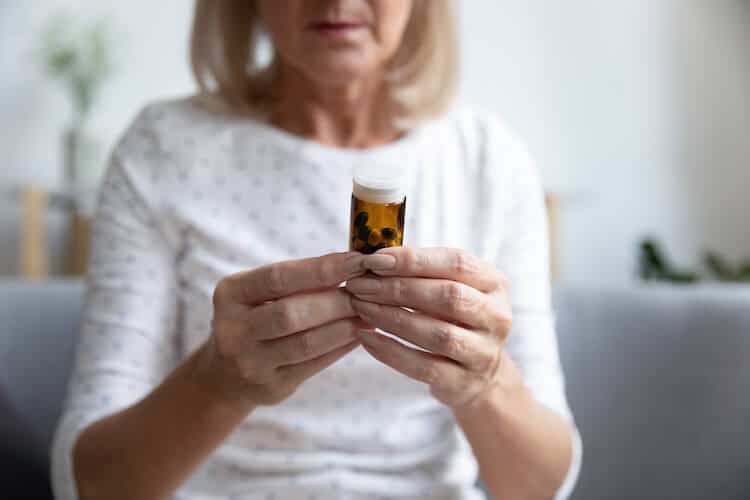Safe Medication Practices: Drug Interactions
December 20, 2019
When it comes to safely taking medications, there are a few important rules to remember. For example, only take prescription medications that were prescribed to you; Take the medications as told by your doctor, nurse or pharmacist; Don’t skip doses; And always remember to ask about drug interactions.
The FDA found that, “The older you get, the more likely you are to use additional medicines, which can increase the chance of harmful drug effects, including interactions.” One common example of this is food and drug interactions.
Did you know your diet can reduce the effectiveness of your medications or result in side effects? Keep reading to find a short list of common food and drug interactions.
A Short List of Food, Drug Interactions
- Acetaminophen and Alcohol – Although this interaction affects anyone drinking alcoholic beverages, this interaction is more common in older adults since the liver’s ability to filter out drugs decreases with age. Two or more alcoholic drinks per day greatly increases the liver toxicity of this over-the-counter pain reliever.
- Antibiotics and Dairy – When eating foods like milk, yogurt, and cheese, be cautious of taking antibiotics and wait one to two hours after eating to take the medications. Calcium binds to antibiotics in the stomach and upper intestine, creating a substance that cannot be absorbed by the body. Since the antibiotics aren’t absorbed effectively, the medicine loses potency.
- Antithyroid and Iodine-Rich Foods – Antithyroid drugs interfere with the body’s production of thyroid hormones that work by preventing iodine absorption in the stomach. If you have an iodine-rich diet that includes foods like seafood and iodized salt, a higher dosage of an antithyroid would be necessary. However, a higher dosage could put you at an increased risk of side effects like rashes, hives and liver disease.
- Grapefruit and Multiple Drugs – Grapefruit and grapefruit juice can increase the amount of certain drugs in your bloodstream and impact the way they’re metabolized in your body, so be especially careful with this food. This interaction is common with drugs taken for impotence, cholesterol levels, and high blood pressure.
- Warfarin and Vitamin K – Warfarin, commonly known as Coumadin, is a blood thinner that helps treat and prevent blood clots. Eating foods high in vitamin K, especially green leafy vegetables, can diminish the drug’s effectiveness. This isn’t to say you have to avoid these foods completely – but keep daily intake consistent and in moderation.
This list is just a small example of food and drug interactions. Be sure to talk to your doctor, nurse and pharmacist about the medications, both prescribed and over the counter, that you take and the potential interactions that can arise.
Discover Personalized Senior Care Services at Monroe Village
At Monroe Village, our personalized approach to care ensures your needs are taken care of. From opportunities at socialization to delicious dining crafted with your dietary needs in mind, our variety of senior care services are designed to fit your needs. And, if you need help with daily tasks like medication management, our expert staff is ready to lend a helping hand.
Contact us today to learn more about our senior living community and schedule your personal tour.




